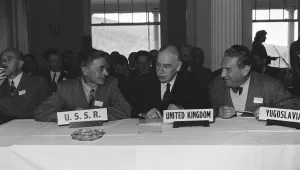International Security is America's leading peer-reviewed journal of security affairs.
Abstract
Scholars attribute conventional violence in a nuclear South Asia to a phenomenon known as the “stability/instability paradox.” According to this paradox, the risk of nuclear war makes it unlikely that conventional conflict will escalate to the nuclear level, thereby making conventional conflict more likely. Although this phenomenon encouraged U.S.-Soviet violence during the Cold War, it does not explain the dynamics of the ongoing conflict between India and Pakistan. Recent violence has seen Pakistan or its proxies launching limited attacks on Indian territory, and India refusing to retaliate in kind. The stability/instability paradox would not predict such behavior. A low probability of conventional war escalating to the nuclear level would reduce the ability of Pakistan’s nuclear weapons to deter an Indian conventional attack. Because Pakistan is conventionally weaker than India, this would discourage Pakistani aggression and encourage robust Indian conventional retaliation against Pakistani provocations. Pakistani boldness and Indian restraint have actually resulted from instability in the strategic environment. A full-scale Indo-Pakistani conventional conflict would create a significant risk of nuclear escalation. This danger enables Pakistan to launch limited attacks on India while deterring all-out Indian conventional retaliation and attracting international attention to the two countries’ dispute over Kashmir. Unlike in Cold War Europe, in contemporary South Asia nuclear danger facilitates, rather than impedes, conventional conflict.
Kapur, S. Paul. “India and Pakistan's Unstable Peace: Why Nuclear South Asia Is Not Like Cold War Europe.” Fall 2005
The full text of this publication is available in the link below.



